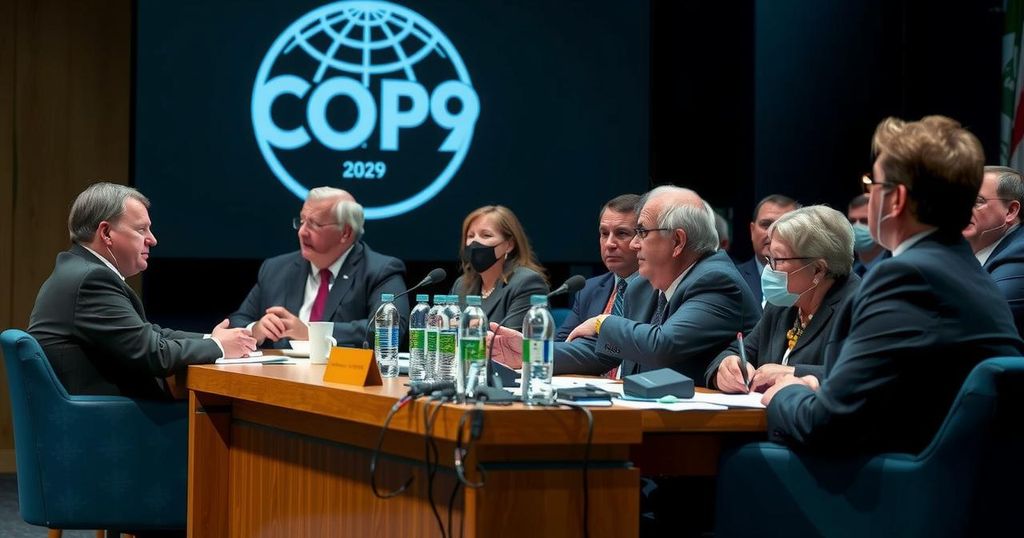At COP29 in Baku, global leaders presented conflicting approaches to combatting climate change as a new report from the Global Carbon Project revealed record-high emissions from fossil fuels. The report urges the world to aim for net-zero CO2 emissions by the late 2030s to meet Paris Agreement goals. Diverging views emerged on fossil fuel reliance and financing frameworks, highlighting the urgent need for action against climate risks faced by vulnerable nations.
During the ongoing COP29 climate talks in Baku, global leaders presented varying strategies regarding climate change amidst a pressing new report highlighting the urgent need for carbon neutrality. The Global Carbon Project’s latest findings revealed that emittances from fossil fuels have reached unprecedented levels, necessitating net-zero CO2 emissions by the late 2030s to adhere to the Paris Agreement’s goal of limiting warming to 1.5 degrees Celsius. Azerbaijan’s lead negotiator Yalchin Rafiyev emphasized the shrinking timeframe for action, stating, “The time window is narrowing, shrinking — and we need to act urgently.” However, divisions became evident as some leaders defended fossil fuel dependence, arguing for a more pragmatic approach that prioritizes economic stability over aggressive decarbonization. In contrast, leaders from countries severely affected by climate change, such as Tuvalu, pressed for immediate action to phase out fossil fuels, declaring that “there is simply no time to waste.” On the financial front, negotiators introduced a new draft proposal for climate funding, yet critical issues remain unresolved. Wealthy nations are urged to commit to providing at least $1.3 trillion annually, a figure significantly exceeding current contributions. Developing nations are advocating for grants over loans due to the burdensome debt they already carry. As Prime Minister Philip Davis of the Bahamas remarked, “The world has found the ability to finance wars…yet when it comes to addressing the most profound crisis of our time, where is that same ability?”
The article pertains to COP29, a pivotal UN conference addressing climate change hosted in Baku, Azerbaijan. As global leaders convene to negotiate climate action, recent research indicates that carbon emissions have surged to record levels, igniting discussions on urgent carbon neutrality goals. The conference seeks not only to secure climate funding for vulnerable nations but also to unify strategies to combat the adverse effects of climate change within the framework of the Paris Agreement.
In conclusion, COP29 reflects a deep divide among global leaders regarding climate strategy, with stark warnings about emissions and urgent calls for action. While some leaders advocate for a balanced approach that incorporates fossil fuels, others stress the immediate need to eliminate them in order to combat climate emergencies. The discussions on climate finance remain contentious, as developing nations plead for substantial support to adapt to climate change challenges, embodying the critical need for a unified global response to this existential threat.
Original Source: www.rfi.fr






